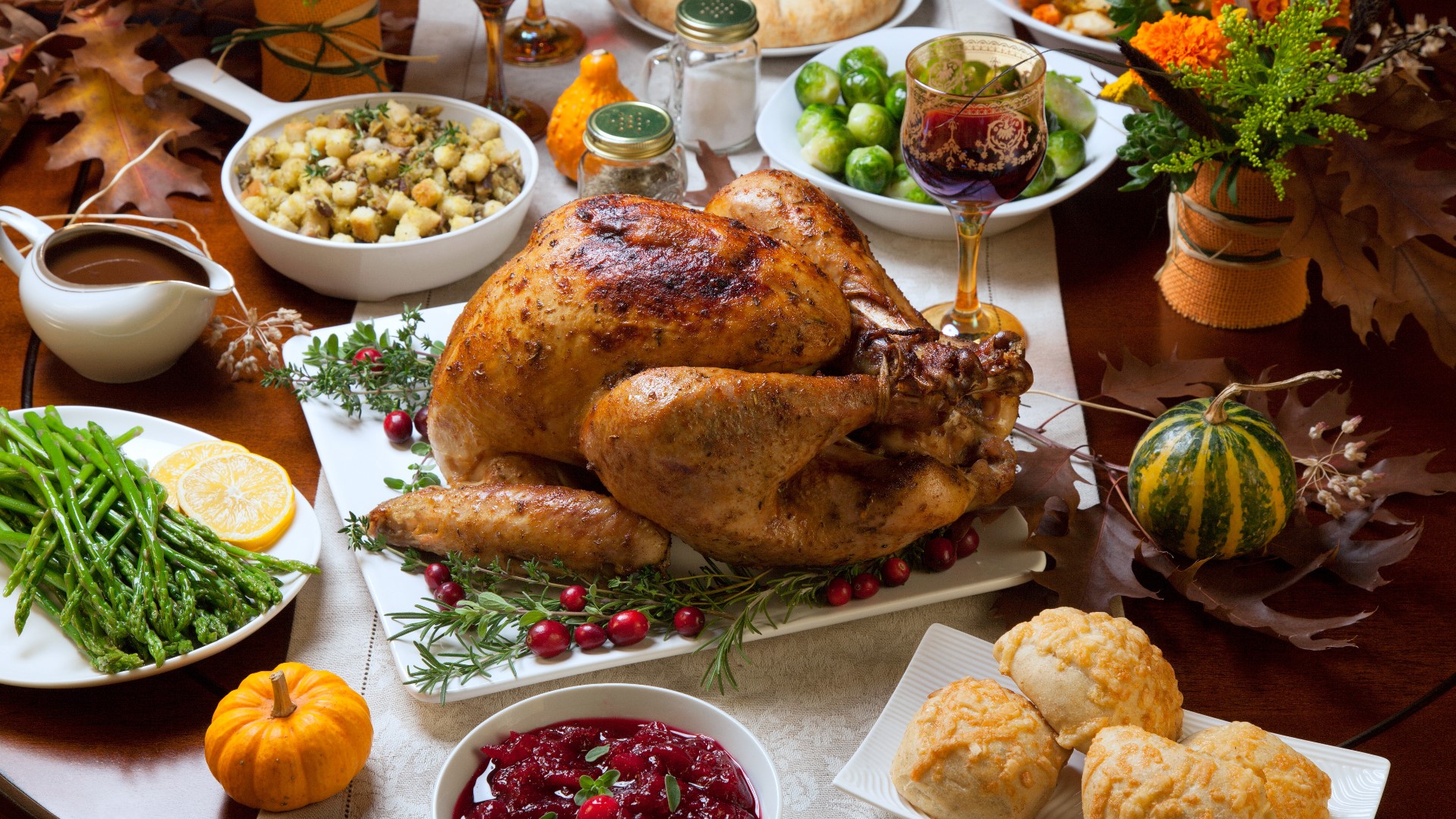HARRISBURG, Pa. — According to the U.S. Fire Administration, the average number of reported residential building fires on Thanksgiving is more than double (2.3 times more) the average number of fires in residential buildings on all other days.
To stay safe this holiday season, The Pennsylvania Insurance Department (PID) and the Office of the State Fire Commissioner joined the Linglestown Fire Company to practice safe cooking habits this Thanksgiving holiday and beyond.
An average of 2,300 residential building fires were reported to fire departments in the U.S. on Thanksgiving Day from 2017 to 2019. These fires caused an estimated annual average of five deaths, 25 injuries and nearly $26 million in property loss.
“We want all Pennsylvanians to have a safe holiday with loved ones and are reminding everyone today that safety should be a top priority,” said Pennsylvania Insurance Commissioner Michael Humphreys. “In the event of an accident, homeowners insurance and renters insurance will only cover certain damages, and PID is here to help should you have any questions about, or problems with, your insurance. We urge you to use caution this holiday season when cooking to avoid potentially dangerous situations and prevent costly repairs. Have a Happy Thanksgiving, and please don’t drop the frozen turkey directly into the fryer!”
Homeowners insurance policies will cover damage to the structure of a home and personal belongings. The policies also provide liability protection for the homeowner if guests are injured. However, a homeowner will still be responsible for any deductibles.
Pennsylvanians should file any claim as soon as possible. Once an insurance company has been notified of a claim, the company has 10 business days to provide the consumer with the necessary claim forms.
During the entire claim process, it is important for consumers:
- Keep a record of all written exchanges and telephone conversations, including names and date/time of the conversation;
- Ask questions if they do not understand something;
- Photograph and make a list of the damaged items;
- Save any receipts for materials purchased for repairs;
- Do not throw away damaged property until the claims adjuster advises it is okay to do so;
- Protect their property from further damage by making temporary repairs until the insurance company advises them on the next steps; and
- Do not make permanent repairs until their insurance company has inspected the property and they have reached an agreement on the cost of repairs. Consumers who make permanent repairs before the adjuster has seen the damage could have their claim denied.
"Just a few simple precautions can greatly affect your safety during this holiday season," said State Fire Commissioner Tom Cook. "Before you fire up the oven, grill, or turkey fryer, make a plan. Ensure all smoke alarms are functioning and there is a fire extinguisher handy. Set regular timers or alarms on your phone to make sure not to lose track of timing. And if you’re using a turkey fryer, make sure to follow all manufacturer’s recommendations for use and cooking."
Here are some tips to keep families, guests and property safe:
- Read the turkey fryer owner's manual thoroughly for proper set-up and safety tips
- Make sure the turkey is completely thawed before frying (hot oil and ice/water do not mix)
- Use the correct amount of oil; overfilled fryers increase the likelihood of oil spilling out of the pot and hitting the burner causing flames to engulf the entire unit
- Never leave the fryer unattended; many fryers lack thermostats to prevent overheating
- Do not deep fry your turkey inside your garage, on your porch or deck, or inside your home
- Have an all-purpose fire extinguisher nearby; never use water to extinguish an oil fire
- Keep children and pets away from all cooking surfaces
- Use proper hand protection; lids and handles of the cooking pot get dangerously hot, posing severe burn hazards
- Ensure full attention is dedicated to cooking; do not consume alcohol while cooking.
The Centers for Disease Control and Prevention (CDC) recommends the following tips to help prevent food poisoning or foodborne illness, during the holidays:
- Keep meat, poultry, seafood, and eggs separate from all other foods at the grocery store and in the refrigerator. Prevent juices from meat, chicken, turkey, and seafood from dripping or leaking onto other foods by keeping them in containers or sealed plastic bags. Store eggs in their original carton in the main compartment of the refrigerator.
- Cook foods thoroughly and use a food thermometer to ensure foods have been cooked to a safe internal temperature to kill germs.
- Keep food out of the danger zone which is between 40°F and 140°F because bacteria can grow rapidly between these temperatures.
- Use pasteurized eggs for dishes containing raw eggs.
- Do not eat raw dough or batter, because they can contain harmful germs such as E. coli and Salmonella.
- Thaw your turkey safely in a sink of cold water or the microwave. Avoid thawing foods on the counter.
- Wash your hands with soap and water:
- Before, during, and after preparing food
- Before eating food
- After handling pet food or pet trays or touching pets
- After using the toilet
- After changing diapers or cleaning up a child who had used the toilet
- After touching garbage
- Before and after caring for someone who is sick
- Before and after treating a cut or wound, and
- After blowing your nose, coughing or sneezing

